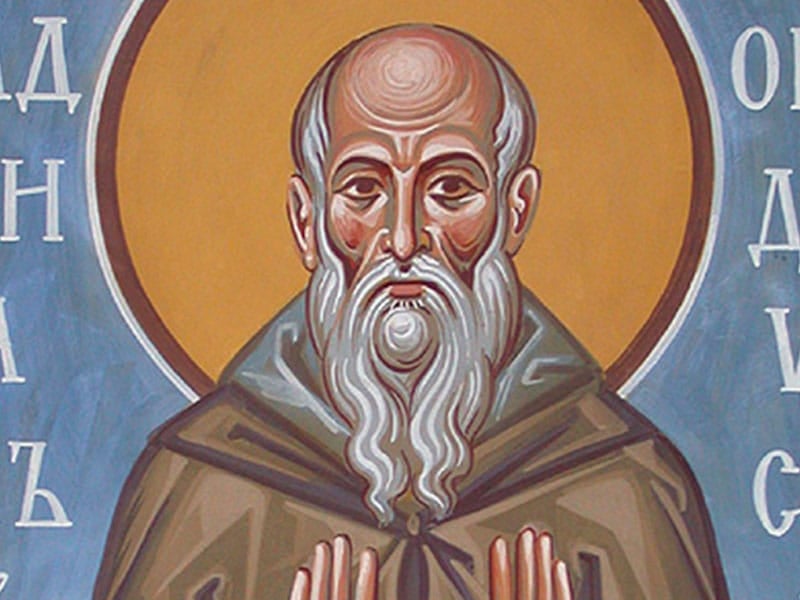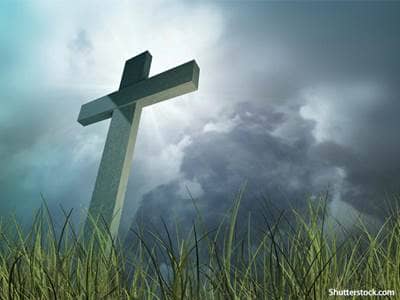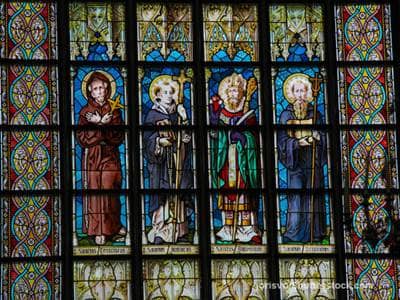St. Adrian of Canterbury (d. 710)

Though St. Adrian turned down a papal request to become Archbishop of Canterbury, England, Pope St. Vitalian accepted the rejection on the condition that Adrian serve as the Holy Father’s assistant and adviser. Adrian accepted, but ended up spending most of his life and doing most of his work in Canterbury.
Born in Africa, Adrian was serving as an abbot in Italy when the new Archbishop of Canterbury appointed him abbot of the monastery of Sts. Peter and Paul in Canterbury. Thanks to his leadership skills, the facility became one of the most important centers of learning. The school attracted many outstanding scholars from far and wide and produced numerous future bishops and archbishops. Students reportedly learned Greek and Latin and spoke Latin as well as their own native languages.
Adrian taught at the school for 40 years. He died there, probably in the year 710, and was buried in the monastery. Several hundred years later, when reconstruction was being done, Adrian’s body was discovered in an incorrupt state. As word spread, people flocked to his tomb, which became famous for miracles. Rumor had it that young schoolboys in trouble with their masters made regular visits there.
-
First Martyrs of the Church of Rome (d. 68)
-
St. John Francis Regis (1597-1640)
-
St. Anthony of Padua (1195-1231)
-
St. Maria Goretti (1890-1902)
-
Blessed John Francis Burte and Companions (d. 1792; d. 1794)
-
St. Agatha (d. 251?)
-
Our Lady of Mount Carmel
-
Servant of God Francis Garces and Companions (c. 1781)
-
Sts. John Jones and John Wall (c. 1530-1598; 1620-1679)
-
Sts. Pontian and Hippolytus (d. 235)


